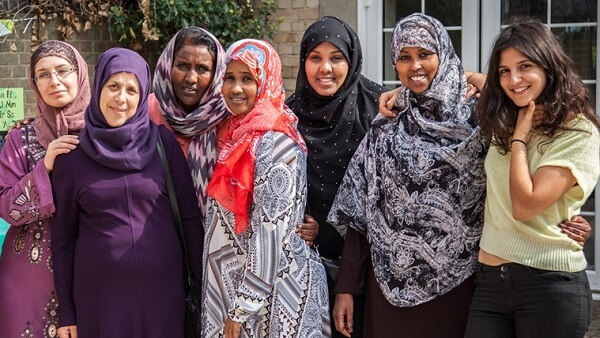Op-ed by Lisa Doyle, Director of Advocacy and Engagement at the British Refugee Council and the Representative for Western Europe on the ECRE Board.
In recent months, the UK Government seems to have finally put refugee integration on the agenda after a long absence. Of course this is something to be celebrated, but some voices have been notably absent from the discussions on integration – those of refugees themselves.
For many, many years the UK has boasted an impressive array of refugee-led organisations (RCOs) which have supported refugees and people seeking asylum to settle in their new communities. Sadly much of the work that RCOs do goes under the radar of policy and decision makers and funders, meaning that their contributions and their expertise have been consistently ignored.
It is for these reasons that we at the British Refugee Council commissioned research to help policy makers, funders and other stakeholders understand the role of refugee-led community organisations and how they contribute to wider policy objectives such as integration, inclusion, cohesion and equality.
The research report, ‘A bridge to life in the UK: Refugee-led community organisations and their role in integration’, highlights the depth and breadth of services that RCOs provide to support refugees to rebuild their lives, including the provision of key information and advice, English language classes, support to find employment and activities to improve health and well-being.
The research found that RCOs are particularly effective in supporting their refugee service users because of three key assets: reach, insight and solutions. They have the ability to reach refugee communities as they have contacts, share languages and cultural affinity, and they are trusted. Their insight often comes from the personal experiences of the refugees running the services, and this improves their ability to find solutions to the barriers and challenges facing refugees. All of these factors make them as unique social integration agencies from whom we can all learn.
The research also examined the challenges faced by RCOs and how civil society support organisations and other support can help RCOs to overcome these challenges and sustain and develop their contributions to integration. All too often they struggle to secure sustainable funding and a seat at the table when issues of refugee integration are being discussed.
In many ways, the research confirmed what we already knew, but now we have the evidence we intend to use it with key stakeholders to bring RCOs in from the margins. We hope it will lead to a major reassessment of the value and importance of RCOs in delivering not just better refugee integration outcomes, but also broader community integration and cohesion goals. Since its publication, we have been encouraged by the response of some funders and policy-makers and we will follow up this positive reception to turn that into changing practices that enable RCOs to survive and influence.
There is also a lot for us to learn as an organisation too. When I first joined the British Refugee Council 13 years ago, we had a large team supporting and promoting the work of RCOs but as a series of funding cuts hit many charities like ours, this programme reduced dramatically. The research outlines the type of support and promotion that RCOs want and need from a relatively large national charity, and we will plan our work accordingly. We believe that these lessons extend beyond the English focus and could help to inform NGOs across Europe and equip us all to champion refugee-led organisations.
Having spent a stimulating few days at the ECRE AGC last week, I was encouraged to see the way refugee-led organisations are actively encouraged to become the valued parts of the membership that they are. We all know that RCOs have vast knowledge and experience of transforming the lives of refugees and it is important that these opportunities for us all to benefit from their valuable insight continue to be created.
Op-ed: ECRE publishes op-eds by commentators with relevant experience and expertise in the field who want to contribute to the debate on refugee rights in Europe. The views expressed are those of the author and does not necessarily reflect ECRE positions.
Photo: (CC) CARAS (www.caras.org.uk)
This article appeared in the ECRE Weekly Bulletin . You can subscribe to the Weekly Bulletin here.

